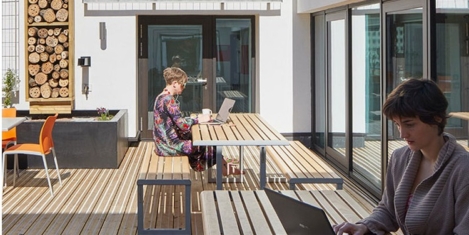To provide the best experiences, we use technologies like cookies to store and/or access device information. Consenting to these technologies will allow us to process data such as browsing behaviour or unique IDs on this site. Not consenting or withdrawing consent, may adversely affect certain features and functions.
The technical storage or access is strictly necessary for the legitimate purpose of enabling the use of a specific service explicitly requested by the subscriber or user, or for the sole purpose of carrying out the transmission of a communication over an electronic communications network.
The technical storage or access is necessary for the legitimate purpose of storing preferences that are not requested by the subscriber or user.
The technical storage or access that is used exclusively for statistical purposes.
The technical storage or access that is used exclusively for anonymous statistical purposes. Without a subpoena, voluntary compliance on the part of your Internet Service Provider, or additional records from a third party, information stored or retrieved for this purpose alone cannot usually be used to identify you.
The technical storage or access is required to create user profiles to send advertising, or to track the user on a website or across several websites for similar marketing purposes.
 The impact of the Covid-19 lockdown on commercial buildings was immediate – offices emptied overnight as people made the sudden shift to home working. Several months later, and although restrictions are being lifted, an unease about the possibility of localised lockdowns and an uncertainty about the potential health implications of being indoors with larger groups, means fewer people than expected are choosing to go back to office-based working. Something that might help reassure them that the office is a safe place is knowing that the air they’ll be breathing is clean. (more…)
The impact of the Covid-19 lockdown on commercial buildings was immediate – offices emptied overnight as people made the sudden shift to home working. Several months later, and although restrictions are being lifted, an unease about the possibility of localised lockdowns and an uncertainty about the potential health implications of being indoors with larger groups, means fewer people than expected are choosing to go back to office-based working. Something that might help reassure them that the office is a safe place is knowing that the air they’ll be breathing is clean. (more…)











 A recent study, which was commissioned by
A recent study, which was commissioned by 






















September 15, 2020
Testing times for offices mean new regimes at work
by Helen Farr • Comment, Wellbeing